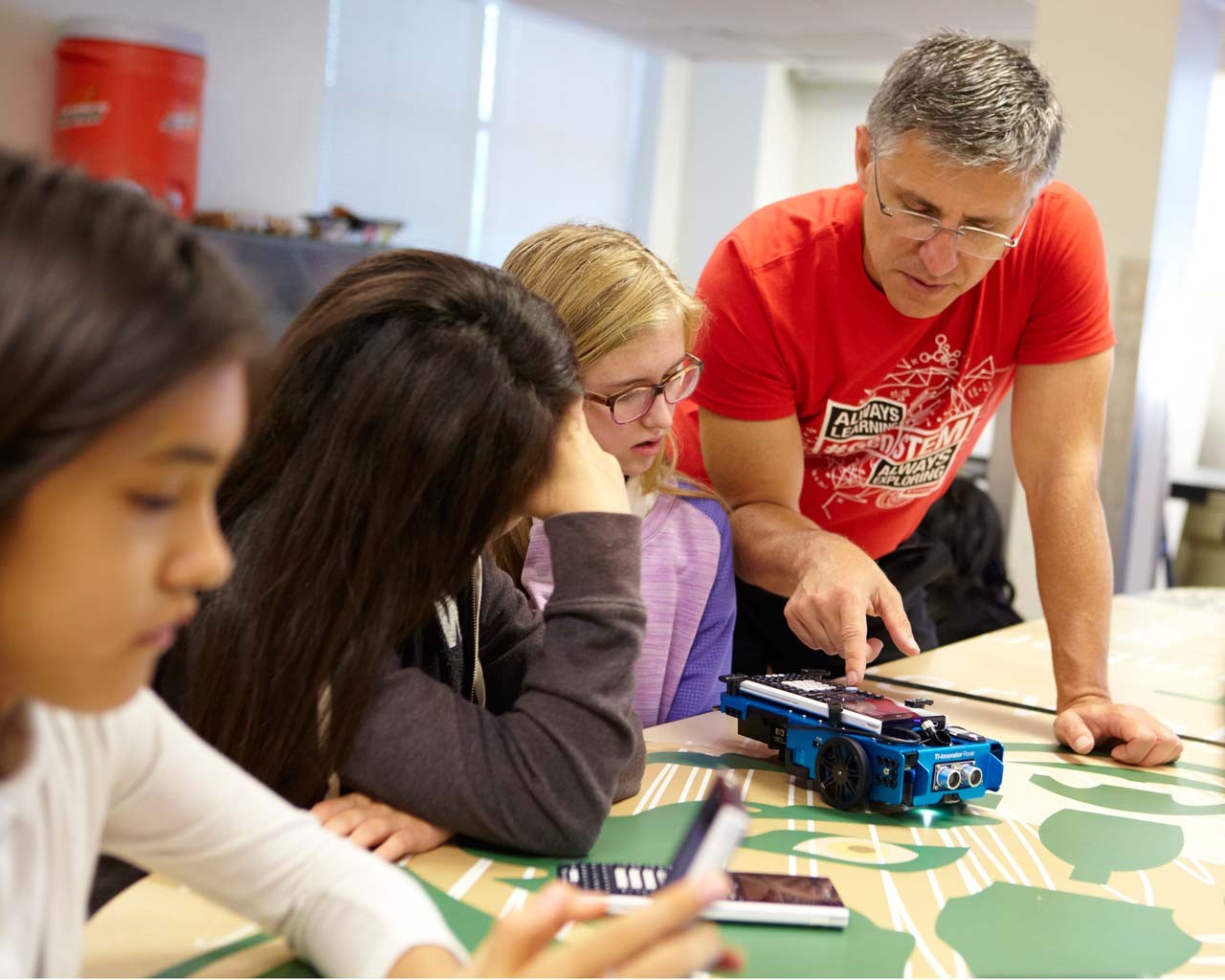Growing up in northern Quebec, Peter Balyta, MSc 00, dreamed of becoming the next Wayne Gretzky. When his hopes were sidelined by an injury, he realized his passion for hockey extended to the physics and math behind the sport.
As a student who once hated math, he quickly noticed how much he relied on it to stay ahead on the ice.
“I had to be quick in the corners or it wouldn’t turn out well for me — my shots were not as strong as anyone else, so accuracy became more important,” says Balyta.
Today his mission is to inspire students to fall in love with science, technology, engineering and math (STEM).
“STEM education is vital to empower the next generation of innovators, problem-solvers and critical thinkers to make the world a better place,” says Balyta, who is vice-president of Academic Engagement and Corporation Citizenship and president of Education Technology at Texas Instruments (TI), based in Dallas, Texas.
 Peter Balyta: 'If we can connect STEM understanding to things that matter in students' lives, they will learn to love it.'
Peter Balyta: 'If we can connect STEM understanding to things that matter in students' lives, they will learn to love it.'
